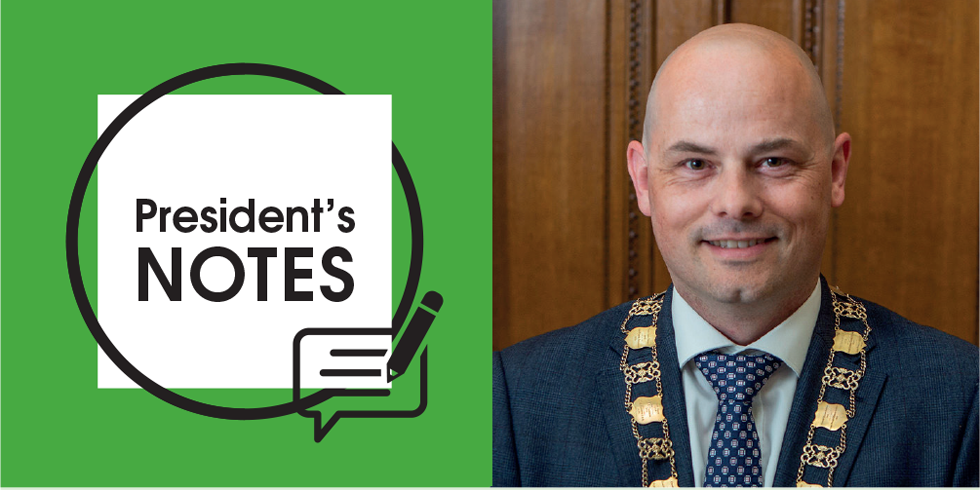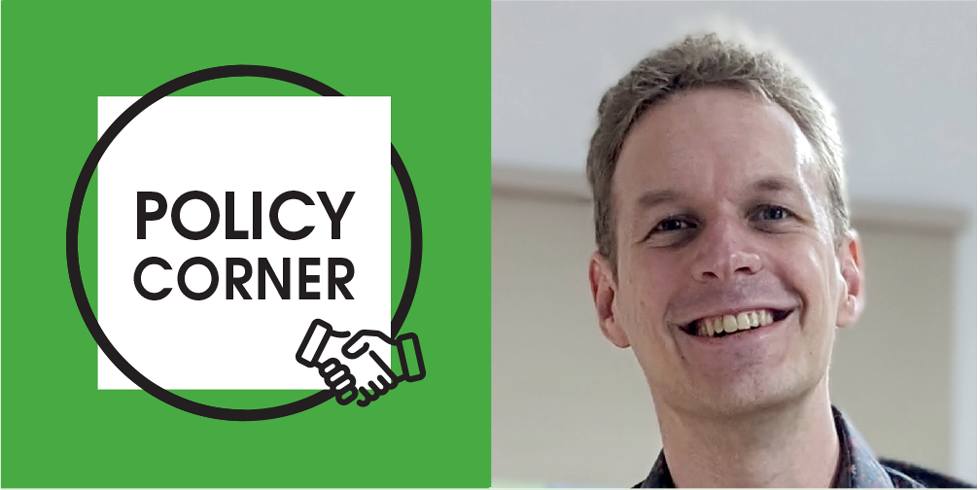IChemE Matters – May 2025

Looking back on a momentous year
Mark Apsey, IChemE president
AS I SIT down to write my final blog as IChemE president, I find it hard to believe that a year has passed already. It has been an immense honour to serve as your 83rd president, and I am proud of all we have achieved together.
This last month has provided a fitting reminder of the huge opportunities to which an education in chemical engineering can lead. I had the privilege of attending the Engineers in Business Fellowship Annual Dinner, hosted by Lord Sainsbury. Here I met engineers, including chemical engineers, who have used their EIB Fellowship to establish successful, innovative businesses. It was an inspiring evening and a powerful endorsement of what we can accomplish when technical skills are paired with leadership and entrepreneurial thinking.
Parliamentary engagement has been a key theme throughout my term. This month, I met with two more MPs at Portcullis House – both of whom, funnily enough, began their academic journeys in chemical engineering before switching subjects. They needed little convincing about the value we bring to society, and our discussions centred on the vital role chemical engineers play in delivering a sustainable future. Engagement like this is starting to have real impact: ministers and policymakers increasingly see IChemE as a trusted, independent voice on key national issues.
I am delighted to welcome Jan Tucker as director of the IChemE Safety Centre, working alongside Fiona Macleod, professor of process safety at University of Sheffield, as chief technical officer. Their expertise will be invaluable as we champion process safety in all its forms and build a safety centre which benefits members and wider society alike. I am excited to see what the future holds.
We have made great progress over the past year, including reaching over 5,000 young people and their teachers with our DiscoverChemEng campaign and seeing UK university applications for chemical engineering rise by 17% (including a 25% rise among young women). IChemE Connect now engages 17% of members, and we have brought together almost 300 successful mentoring matches. Member and Special Interest Groups (SIGs) are gaining momentum, with international growth and a significant rise in engagement. Meanwhile, our Sustainability Hub continues to expand – nearly 3,000 members accessed courses in the past year. Particularly close to my heart, we now have contributions from close to 50 members for our “How I did it” campaign.
All of this and more is helping raise the profile of our profession with government, industry, academia and wider society. The combined efforts of staff and volunteers are being reflected in membership growth – the most recent numbers suggest an impressive 6% year on year rise, including a 35% increase in student members. All of this is supported by streamlined proceses for membership and professional registration, making IChemE more accessible to the diversity of people contributing to our profession while maintaining the high standards that define us.
In my Presidential Address, I challenged us all to consider what we could do to help deliver our shared vision of engineering a sustainable world. I want to thank each and every one of you for your energy, dedication and support that makes IChemE so special. Let’s keep that momentum going and I look forward to working with Raffaella and everyone else to ensure we continue to thrive. Thank you.

Engineering influence
Duncan Lugton, head of policy and impact
ONE OF the most striking things I’ve learned working at IChemE is how uniquely well chemical engineers’ problem-solving skills align with the complex challenges faced by policymakers. Despite that, we are less likely to be thought of in connection to policy than lawyers, economists or communications professionals. Chemical engineers can also be less exposed to the world of policy or less likely to see themselves as having a role to play in it.
All this prompted the policy team to host an afternoon of lectures and a roundtable at this year’s ChemEngDayUK on the contribution of chemical engineering to public policy. Hosted this year by the University of Sheffield, ChemEngDayUK provided an opportunity to showcase this work to the next generation of chemical engineers, gathered alongside researchers, educators and industry professionals.
At a well-attended and lively session, I was particularly interested to hear the conversations about the profoundly different ways that chemical engineers and policymakers use language and see the world, with seemingly simple words like “evidence” and “risk” having wildly different meanings to different people. There was also a fascinating discussion on how academics and policymakers have completely different professional incentives, and that these condition them to behave very differently. For instance, academics are rewarded for innovative thinking and pushing forward the state of knowledge in their field, whereas policymakers are much more likely to simply want to hear about the current overall state of evidence in a particular discipline.
It was really encouraging to see such a strong interest in policy among the students and academics at ChemEngDayUK, and I am looking forward to getting more chemical engineers involved in and aware of policy in the future – be that through roundtables, events, collaborating on consultation responses, or through working with our Special Interest Groups (SIGs).
For more on our work: www.icheme.org/policy
Want to brief lawmakers? Apply for the Ashok Kumar Fellowship
CHEMICAL engineers are invited to apply for the Ashok Kumar Fellowship, a three-month placement at the UK Parliamentary Office for Science and Technology (POST).
Open to final-year students and postgraduates, the successful candidate will research and write a briefing note for UK lawmakers on an emerging science or engineering topic. Previous winners have briefed on topics ranging from STEM skills to chemical weapons.
Apply here: https://bit.ly/ashok2025
2,000th LinkedIn follower
TCE has enjoyed a surge of followers in recent months since we stopped using X and embraced LinkedIn. Thanks to Luke Paslowski who became our 2,000th follower.
Join us here: https://bit.ly/TCE-LinkedIn
Recent Editions
Catch up on the latest news, views and jobs from The Chemical Engineer. Below are the four latest issues. View a wider selection of the archive from within the Magazine section of this site.




